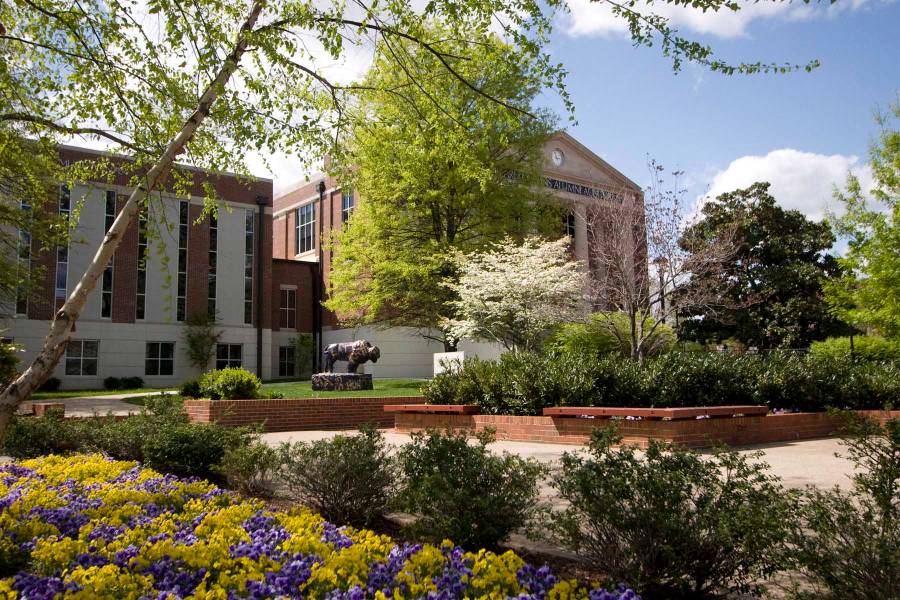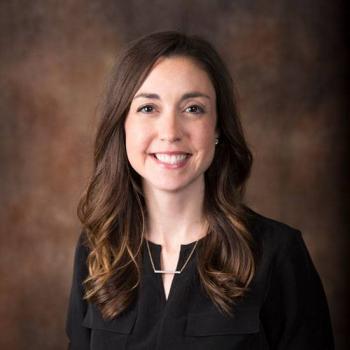Student Care Emergency Fund provides a boost when the unexpected happens
The Office of Student Wellbeing has launched another avenue to serve students.
Kim Chaudoin |

During the course of pursuing a college degree, life does not always go as planned for students which can lead to unexpected hardships that can jeopardize their academic journey.
The Lipscomb University Office of Student Wellbeing understands that unexpected circumstances such as the death of a loved one, an accident, a sudden physical or mental health crisis or the loss of income can result in financial or emotional barriers. To help support and care for students in these moments, the office has launched the Student Care Emergency Fund.
“The spirit of this funding is primarily to support student’s financial wellness and personal wellbeing in emergency circumstances,” says Dannie Woods, dean of student wellbeing. “This fund is intended to be a supplemental financial resource when students are unable to meet immediate and essential expenses due to unexpected, unforeseen and unavoidable circumstances.
Woods explains that the fund is intended to assist students with immediate, essential living needs including, but not limited to, rent, food/groceries, clothing, transportation or unexpected safety and medical needs, to encourage the student’s continued success in their studies at the university. This fund is not intended to cover long-term expenses, credit card debt, tuition or other education expenses, as they are not considered unexpected or unforeseeable circumstances.

Dannie Woods
“The goal of our office is to be supportive of students as they navigate any type of crisis. So this fund now gives us a tangible way to do that in students’ lives,” explains Woods. “In the Office of Student Wellbeing we have mental health and educational resources and we have emotional support to provide. But we've never had the funding to help them in situations where, for example a student needs a medical test but their family can't pay for it because their dad lost his job or a family member dies suddenly and a student doesn’t have the money to buy a plane ticket to fly across the country to go home. It gives us a tangible way to be the hands and feet of Jesus. The Student Care Emergency Fund is the next level of care and support that we can give to our students that we haven't been able to do up until this point.”
To be eligible to apply for these funds, a student must be currently enrolled, have an immediate financial need resulting from an emergency, accident or other unexpected critical incident and must have utilized other available resources and funding options. To be considered for these funds, students may apply or members of the Lipscomb community are also able to apply on behalf of a student by filling out this form.
The funding is awarded on a case by case basis up to $300, but in extenuating circumstances, the Dean may make an exception, but no more than $500 will be gifted. Upon receival of funding the fund will be taxed as income. All requests are handled in a private manner through the Lipscomb University Office of Student Wellbeing.
Woods says the number of students who benefit from this fund is dependent upon the availability of funds. This Student Care Emergency Fund is funded through donations from the Lipscomb community.
“By donating to this fund you are ultimately supporting a student in achieving their academic goals and bringing hope into their difficult circumstances,” she says.

The Student Care Emergency Fund is the latest initiative launched by the Office of Student Wellbeing, formed in May 2019 as part of the Office of Student Life. Woods says the purpose of the office is to “look at the holistic student experience.”
“The line we use a lot in our department is that we want our students to start well and to stay well while they are at Lipscomb,” she says. “It starts at the orientation experience as a new students. During their time here, we want to look at the whole student and make sure that we can find ways to support their physical, social, emotional and spiritual health. The programs that we offer are touch points we can have with students throughout their time here to help and support them in any kind of situation.”
The Office of Student Wellbeing includes the areas of new student orientation programming; Campus Recreation and Wellness; the CARE team, which serves students who are going through a difficult time due to various life circumstances; and the Behavioral Intervention Team. Serving with Woods are student care coordinators Paige Benda and Sarah McCormack. The Student Care Coordinators address the needs of students who have challenges in areas of physical or mental health, finances, family crisis or other personal concerns that may affect their academic performance or holistic engagement within the Lipscomb community. The Student Care Coordinators provide wraparound services through collaboration with ACCESS ability services, Academic Success Center, Housing and Residential Life, Care team, University Health Center, the University Counseling Center, as well as off campus resources. Additionally the Student Care Coordinators collaborate with various departments to develop and implement outreach and events to support wellness across the campus. During the pandemic, McCormick has also served as the coordinator of care for students who are isolated or quarantined due to the COVID-19 pandemic.
“I want students to know that there's a place to go, when you need help in any capacity. What we want students to know is if they’re navigating anything difficult on campus or personally or just have some questions, let our office be the place where you land and try to navigate that,” says Woods. “And if we can't solve the problem for the student, we're going to know where to connect them to get the right resources that we have available to them. I want students to know that we're here and that we want to help.”